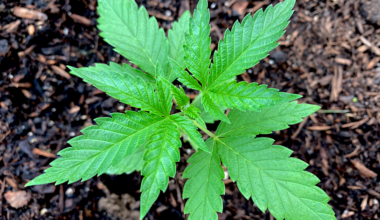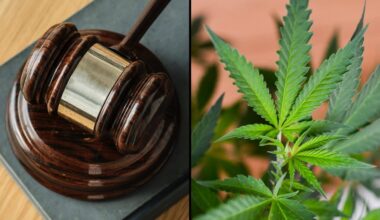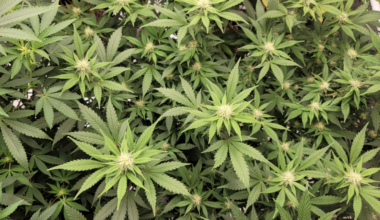The California Assembly on Thursday approved a Senate-passed bill that would establish a pilot program to allow certain jurisdictions throughout the state to authorize safe consumption sites where people could use currently illicit drugs in a medically supervised environment.
The legislation from Sen. Scott Wiener (D) cleared the chamber in a 42-28 vote. Because it was amended during the Assembly committee process, it must still return to the Senate for concurrence following the July recess before potentially heading to the governor’s desk.
It’s been a years-long journey for SB 57, which was first introduced in December 2020 and passed the full Senate in April 2021. Prior to the latest floor vote in the Assembly, it advanced through the Health Committee and Public Safety Committee.
Wiener, who has championed several drug policy reform bills in the legislation, including one to legalize possession of psychedelics that’s sat in legislative limbo since clearing the Senate and two Assembly panels last year, said following Thursday’s vote that safe consumption sites “are a proven strategy to save lives & get people into treatment.”
The bill now returns to the Senate after our July recess for final sign off before heading to the Governor.
Huge thanks to Assemblymembers @MattHaneySF @AsmCarrillo @SantiagoAD53 @laurafriedman43 for working with us as a team to get this done.
Huge win for public health.
— Senator Scott Wiener (@Scott_Wiener) June 30, 2022
“Every overdose death is preventable,” the senator said in a press release. “We have the tools to end these deaths, get people healthy, and reduce harm for people who use drugs. Right now, we are letting people die on our streets for no reason other than an arbitrary legal prohibition that we need to remove. SB 57 is long overdue, and will make a huge impact for some of the most vulnerable people in our community.”
As Wiener has previously pointed out, these types of harm reduction programs have precedent, with other countries having already effectively demonstrated that they can save lives. Despite federal obstacles, New York City became the first city in the U.S. to sanction safe consumption sites, and officials have touted the early results.
At the federal level, the White House drug czar recently said that the Biden administration is reviewing broader drug policy harm reduction proposals, including the authorization of supervised consumption sites—and he went so far as to suggest possible decriminalization.
—
Marijuana Moment is tracking more than 1,500 cannabis, psychedelics and drug policy bills in state legislatures and Congress this year. Patreon supporters pledging at least $25/month get access to our interactive maps, charts and hearing calendar so they don’t miss any developments.![]()
Learn more about our marijuana bill tracker and become a supporter on Patreon to get access.
—
While the Biden administration is still investigating the clinical efficacy of such facilities, Office of National Drug Control Policy (ONDCP) Director Rahul Gupta said that the proposal to lift the existing federal ban is on the table. The comments come as the Justice Department is in ongoing litigation in a case concerning the legality of safe consumption sites that was brought about as a challenge to a Philadelphia-based nonprofit, Safehouse.
DOJ said in February that it is actively “evaluating supervised consumption sites, including discussions with state and local regulators about appropriate guardrails for such sites, as part of an overall approach to harm reduction and public safety.”
In October, the Supreme Court rejected a request to hear a case on the legality of establishing the Safehouse facilities, but the case is still before a lower federal court.
The National Institutes of Health (NIH) put out a pair of requests for applications (RFAs) in December for an effort that will provide funding for efforts to investigate how that and other harm reduction policies could help address the drug crisis.
Gupta previously said that it’s critical to explore “any and every option” to reduce overdose deaths, and that could include allowing safe consumption sites for illegal substances if the evidence supports their efficacy.
The secretary of the U.S. Department of Health and Human Services (HHS), Xavier Becerra, has also signaled that the Biden administration would not move to block the establishment safe injection sites, stressing that “we are literally trying to give users a lifeline.”
But a department spokesperson later walked those remarks back, stating that “HHS does not have a position on supervised consumption sites” and the “issue is a matter of ongoing litigation.” In any case, it would be up to DOJ to decide whether to pursue operators of the facilities under the Controlled Substances Act.
At the state level, a New York Assembly committee advanced a bill last month to establish a statewide safe consumption site program, allowing regulators to authorize facilities where people could use currently illicit drugs in a medically supervised environment.
In a setback for advocates, however, Vermont’s governor recently vetoed a bill that would have simply created a working group tasked with crafting a plan to open safe consumption sites.
A poll released in April found that a majority of Americans (64 percent) support allowing safe consumption sites.
Back in California, the legislature on Wednesday approved a bill that provides significant tax relief for the state’s marijuana industry, which advocates and stakeholders hope will drive down the illicit market while supporting licensed businesses and equity interests.
California Marijuana Tax Relief Bill Heads To Governor’s Desk
Photo courtesy of Jernej Furman.
Medical Disclaimer:
The information provided in these blog posts is intended for general informational and educational purposes only. It is not a substitute for professional medical advice, diagnosis, or treatment. Always seek the advice of your physician or other qualified healthcare provider with any questions you may have regarding a medical condition. The use of any information provided in these blog posts is solely at your own risk. The authors and the website do not recommend or endorse any specific products, treatments, or procedures mentioned. Reliance on any information in these blog posts is solely at your own discretion.







